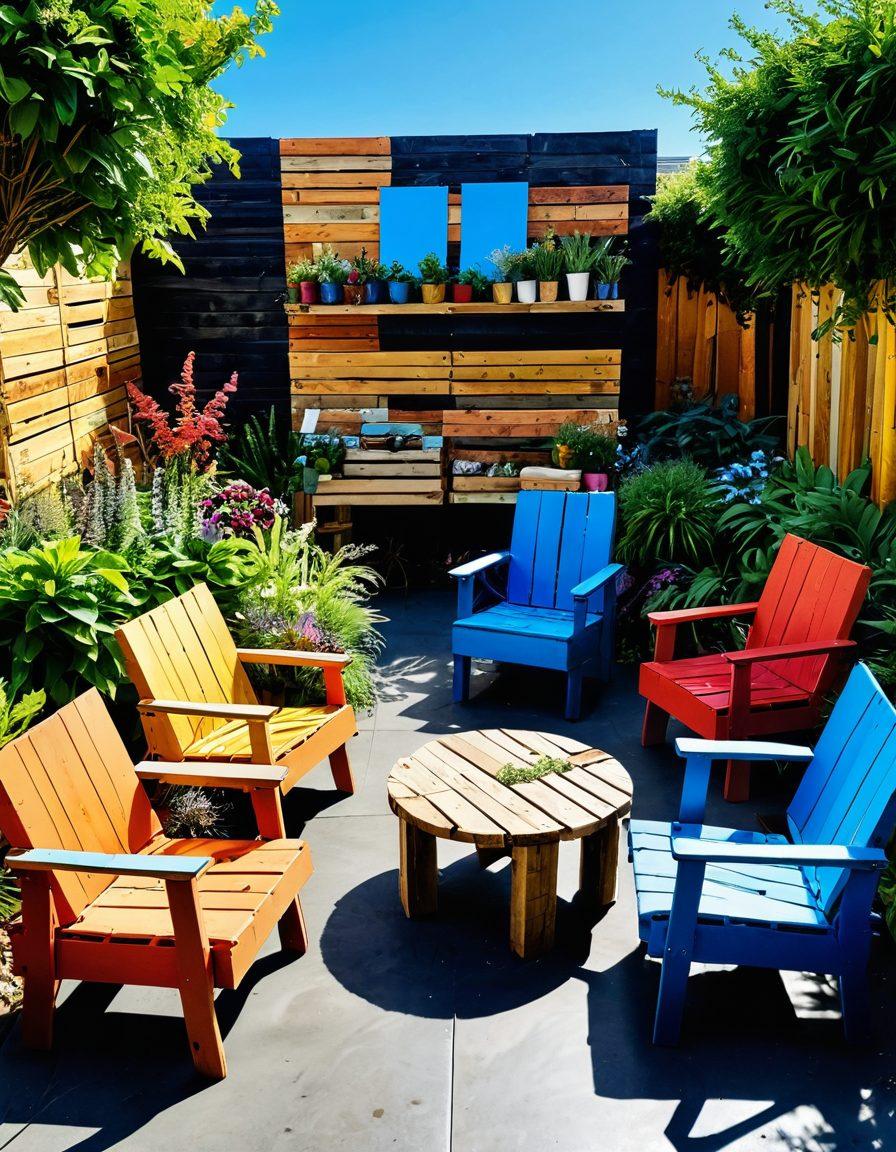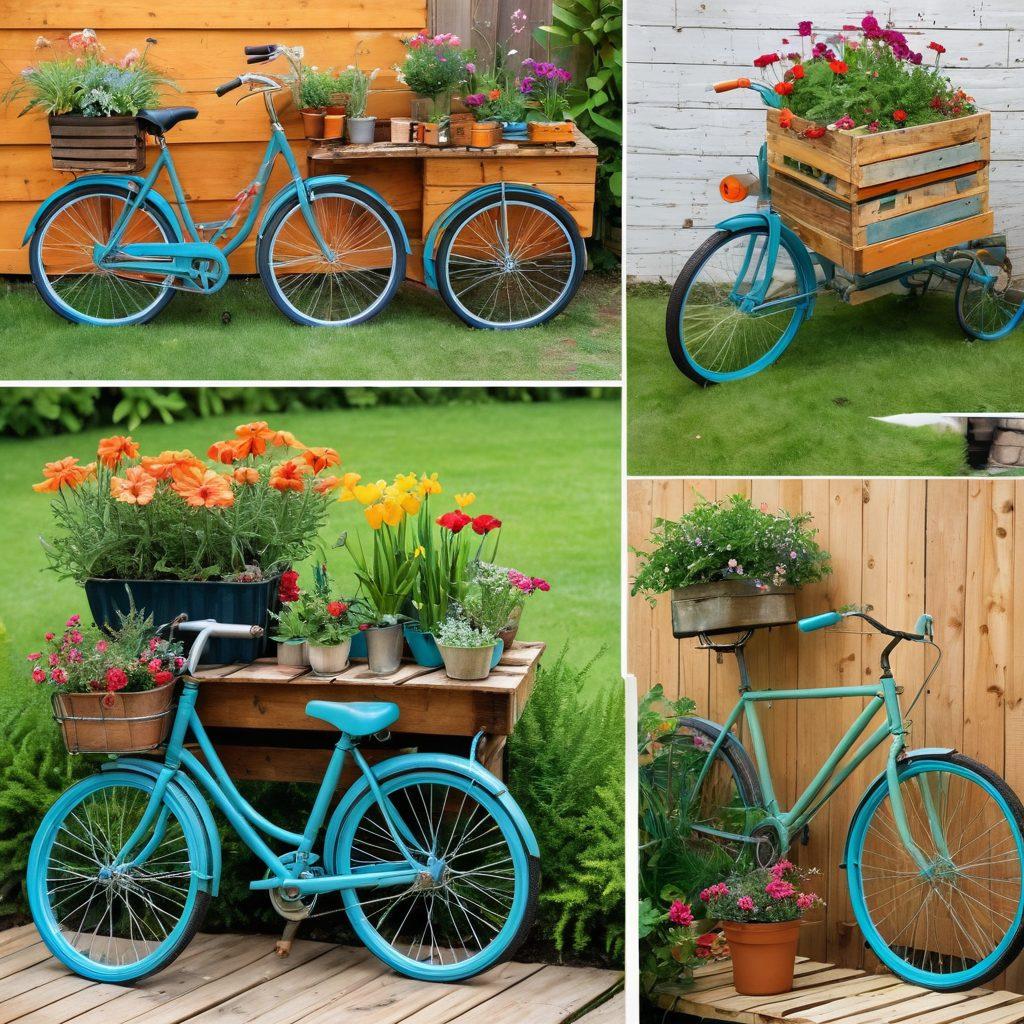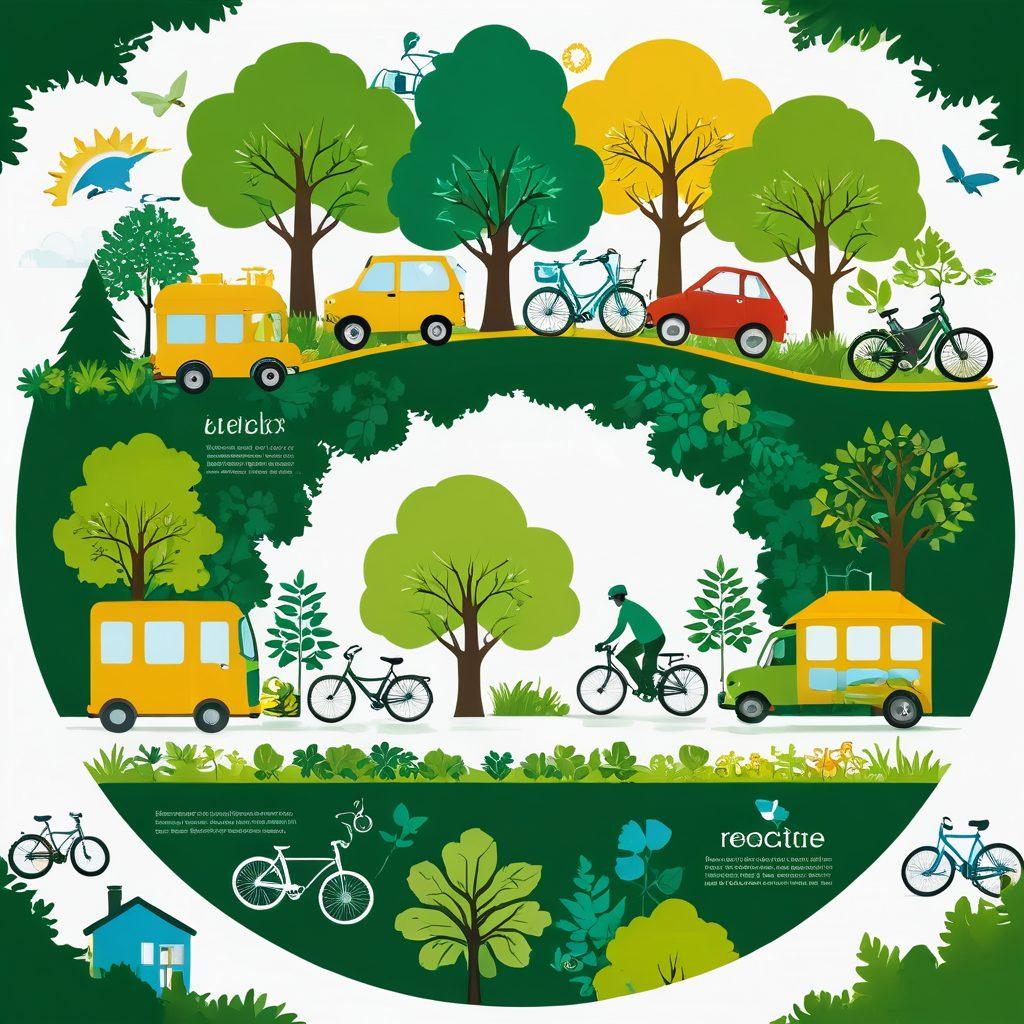Embracing the Circular Economy: Innovative Ways to Upcycle and Reuse for a Sustainable Future
Have you ever looked at a worn-out pair of jeans or a glass jar and wondered if they could live a second life? The concept of transforming trash into treasure is the essence of upcycling—a cornerstone of the circular economy. This innovative approach to waste management not only keeps items out of landfills but also promotes a sustainable lifestyle that resonates with eco-conscious individuals. In a world where our natural resources are finite, embracing creative upcycling ideas can lead to a greener tomorrow. How can we shift our perceptions of 'waste' and view these items as treasures waiting for a new purpose?
Consider this: every year, millions of tons of materials are thrown away, contributing to pollution and climate change. But what if we could flip that narrative? Upcycling encourages us to get creative, turning what we once deemed useless into something functional and inspiring. For example, old wooden pallets can be transformed into beautiful furniture, while glass bottles can be converted into elegant garden decorations. Imagine hosting a dinner party and showcasing a handmade centerpiece crafted from reclaimed materials. As the saying goes, 'One person's trash is another's treasure.' How many treasures lie hidden in your own home, waiting to be discovered?
Engaging in upcycling doesn't require you to be an artist or craftsman. The beauty of repurposing lies in its accessibility. Start small! Consider a few simple projects: turn an old t-shirt into a reusable shopping bag, or use wine corks to create a unique bulletin board. These little acts of creativity not only reduce waste but also foster a sense of accomplishment. What items do you have lying around that you could turn into something new? Empowering ourselves with these small, actionable steps can create a ripple effect in our communities, promoting green practices and sustainability.
As we explore the power of upcycling, we must also acknowledge the broader implications for our planet. By repurposing materials, we contribute to the circular economy—where products are designed with their end-of-life in mind, minimizing resource consumption and waste. Moreover, adopting these practices can foster a culture of conservation, inspiring others to seek biodegradable alternatives and embrace zero waste principles. Have you thought about the message your recycling and upcycling habits send to those around you? Each small step we take reinforces our commitment to environmentalism and a more sustainable future.
In essence, the journey of upcycling is not just about saving items from the trash heap; it's about creating a lifestyle that harmonizes with our environment. It's an invitation to find beauty in imperfection and to value creativity in everyday life. As we continue to explore innovative ways to upcycle and reuse, remember that every effort counts. Together, through sustainable living and celebrating the art of repurposing, we can tread lightly on the earth, fostering a love for our planet and all its resources. Are you ready to explore the endless possibilities of transforming trash into treasure?
From Waste to Wonders: The Art of Repurposing for Sustainable Living
Have you ever looked at something you were about to throw away and thought, "This could be something beautiful"? The art of repurposing transforms everyday waste into wonderful creations, allowing us to breathe new life into discarded items and embrace a more sustainable future. In a world overflowing with clutter, eco-conscious individuals are discovering innovative ways to recycle, reuse, and upcycle through creative projects that serve both aesthetic and practical purposes. By diving into the realm of repurposing, not only do we challenge ourselves, but we also contribute positively to the planet.
Imagine a world where every bit of waste is seen as a resource rather than a burden. In a circular economy, each discarded object holds the potential for renewal, echoing the principles of sustainability and conservation. Whether it's an old wooden pallet transformed into a chic coffee table or glass jars repurposed as stylish planters, every minor upcycle gives us the opportunity to engage with our environment in a way that aligns with our green lifestyle aspirations. Isn't it time we reconsidered our relationship with waste?
Repurposing is more than just a trend; it's a journey toward zero waste living, where practicality meets creativity. Have you ever organized a DIY project where you turned an old T-shirt into a reusable shopping bag? Or perhaps fashioned a coffee can into an adorable storage container? These seemingly simple actions not only reduce landfill waste, but they also cultivate a conscious mindset around consuming materials responsibly. By embracing these green practices, we can inspire others to treat the planet with respect, one small solution at a time.
As we explore the art of repurposing, let us remember the dual impact it has on sustainability. Every time we choose to upcycle, we not only keep materials out of the waste management system but also reduce the demand for new resources. This, in turn, lessens the strain on natural resources and contributes to renewable energy efforts. By engaging in these eco-focused activities, we can ignite meaningful discussions about environmentalism and how our everyday choices shape the world around us. Wouldn't it be something magical if every household took part in this transformative cycle?
Ultimately, the journey of transforming waste into wonders through repurposing empowers us all to be custodians of our planet. From making biodegradable crafts to composting organic materials, practical steps toward sustainable living can ensure our environment flourishes for future generations. By utilizing reclaimed materials and embracing innovative recycling techniques, we can educate ourselves and others about the endless possibilities that lie within our trash. So, who’s ready to embark on an adventure that not only yields beautiful creations but also makes a significant impact on our planet?
Circular Economy Made Easy: Practical Tips for an Eco-Conscious Lifestyle
In a world increasingly aware of the impact of our consumption, the phrase 'circular economy' is more than just a buzzword; it’s a promise for a sustainable future. But what does it really mean for us as consumers? The circular economy invites us to rethink our approach to recycling, reuse, and the way we interact with our natural resources. Imagine a lifestyle where waste is minimized, materials are reclaimed, and every item tells a story of renewal. How can you make this eco-conscious shift in your everyday life?
Let's embark on a journey into practical tips that can seamlessly weave sustainability into your lifestyle. Start by evaluating your own home: what items are you holding onto that could be upcycled or repurposed? Instead of tossing an old wooden pallet, consider transforming it into a stylish garden bench or a rustic coffee table. As the Japanese proverb goes, 'Time spent in a job you love is always time well spent.' Why not fall in love with your household items again through the creative process of upcycling?
One of the most effective ways to embrace the circular economy is through conscious waste management. How often do you toss items mindlessly into the trash? By adopting a zero waste mindset, you can categorize waste into composting, recycling, and genuine refuse. Composting transforms your kitchen scraps and garden waste into rich soil for your plants, an act of conservation that gives back to the earth. Every banana peel and leftover vegetable can serve a purpose beyond the trash can—a powerful reminder that nature finds a way to reclaim. Are you ready to take the plunge and join the zero waste community?
In your quest for a green lifestyle, consider making the switch to products that are biodegradable and sustainably sourced. From household cleaners to clothing, each purchase offers a chance to support environmentalism. Look for brands that prioritize renewable energy and use reclaimed materials in their production. By voting with your wallet, you actively contribute to a circular economy that respects the planet. Where can you start making small changes today that lead to bigger impacts tomorrow?
Ultimately, embracing the circular economy is about fostering a mindset of conservation and awareness. Engage your community by sharing tips on sustainable living or organizing clothing swaps to extend the life of garments. Collectively, we can create a rippling effect that elevates eco-friendly practices and highlights our critical role in the stewardship of the planet. So, what practical step will you take this week to infuse your life with green practices? The journey towards sustainability is not merely about change; it’s about transforming our world, one mindful choice at a time.


